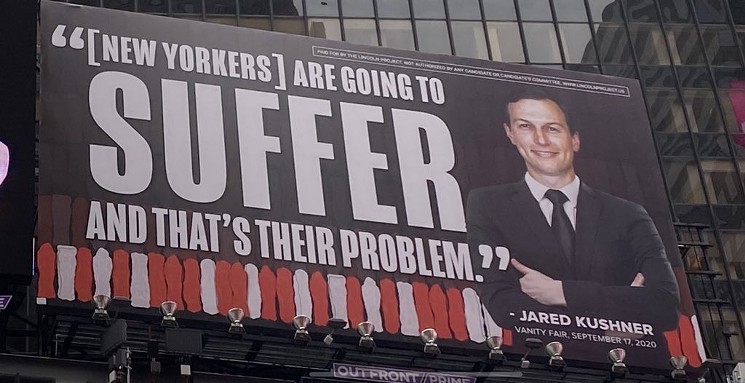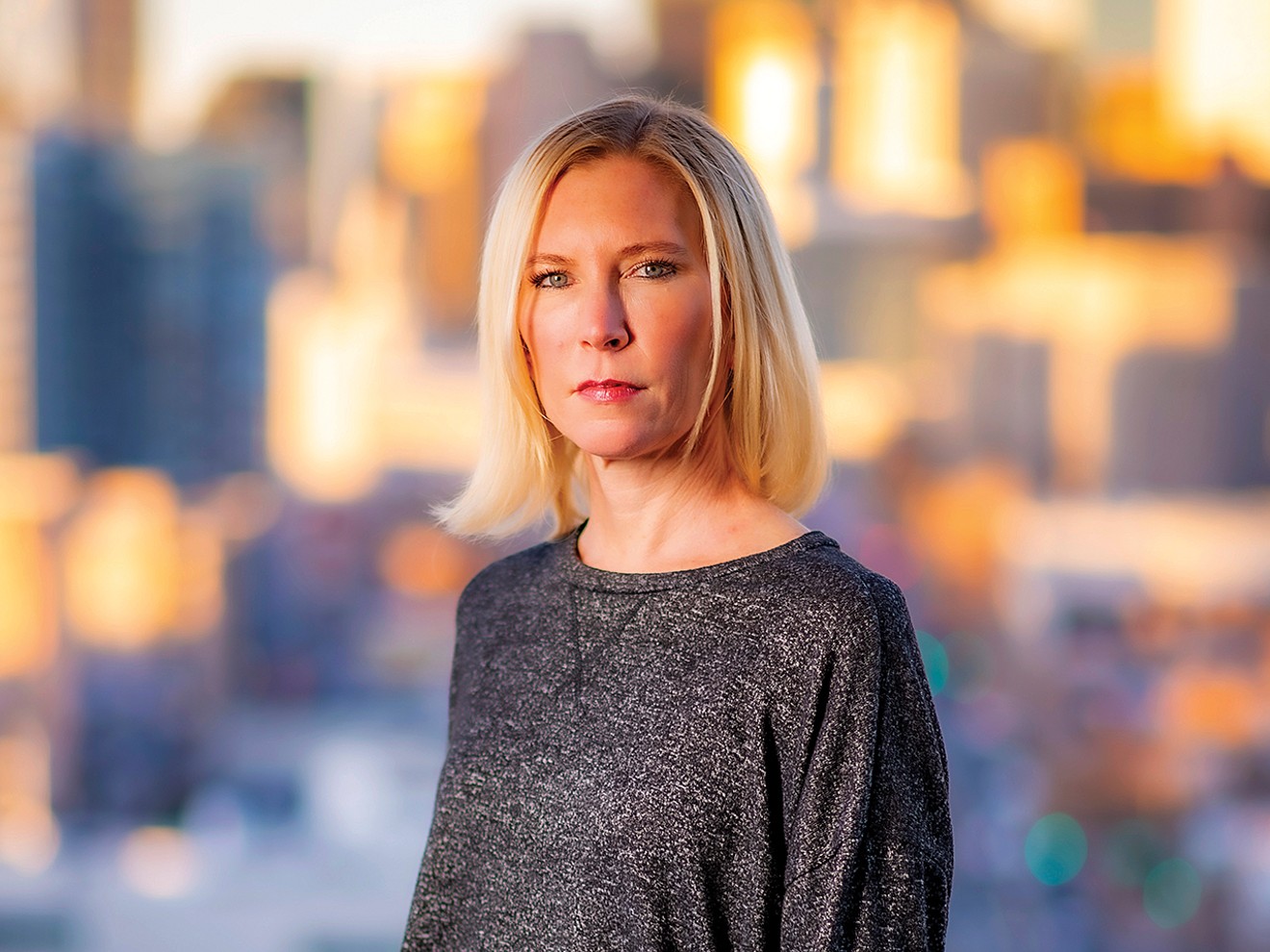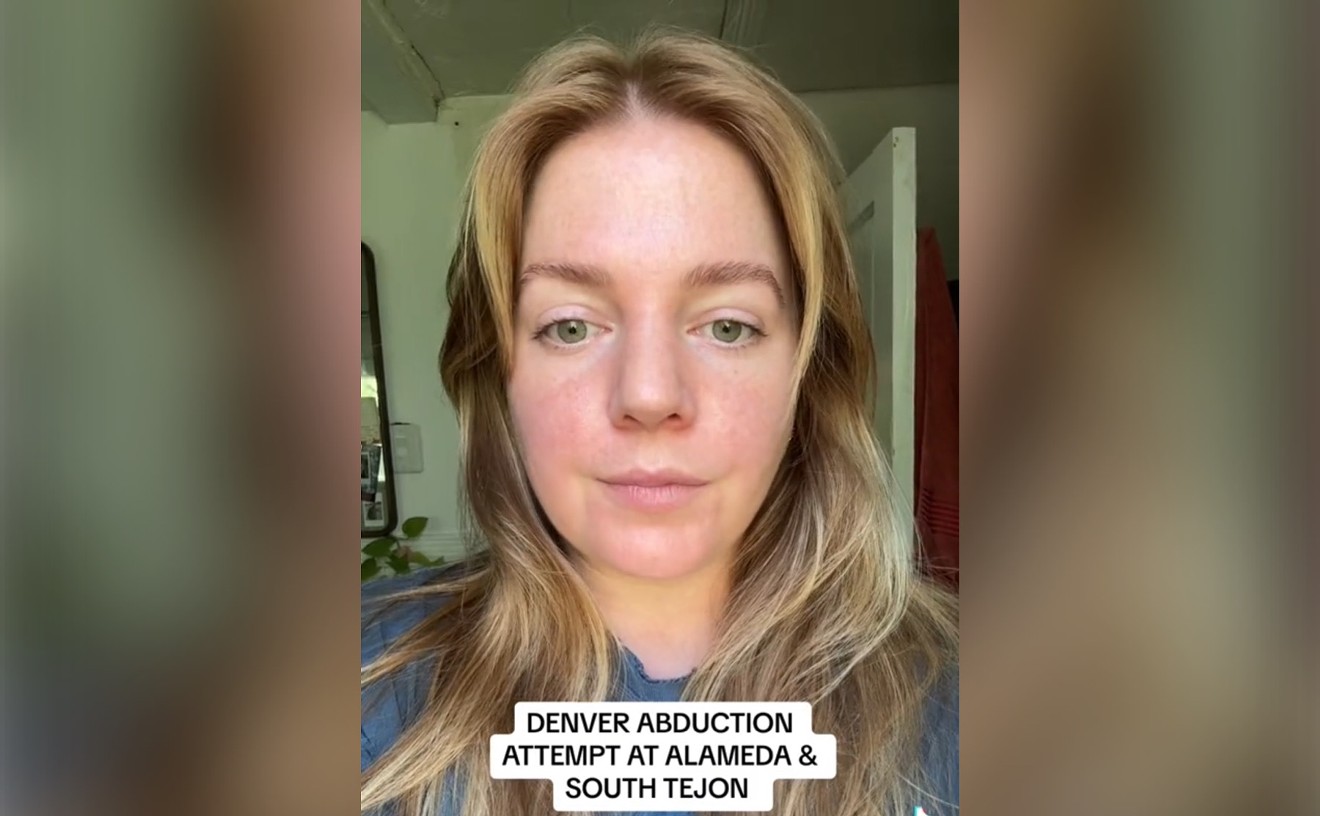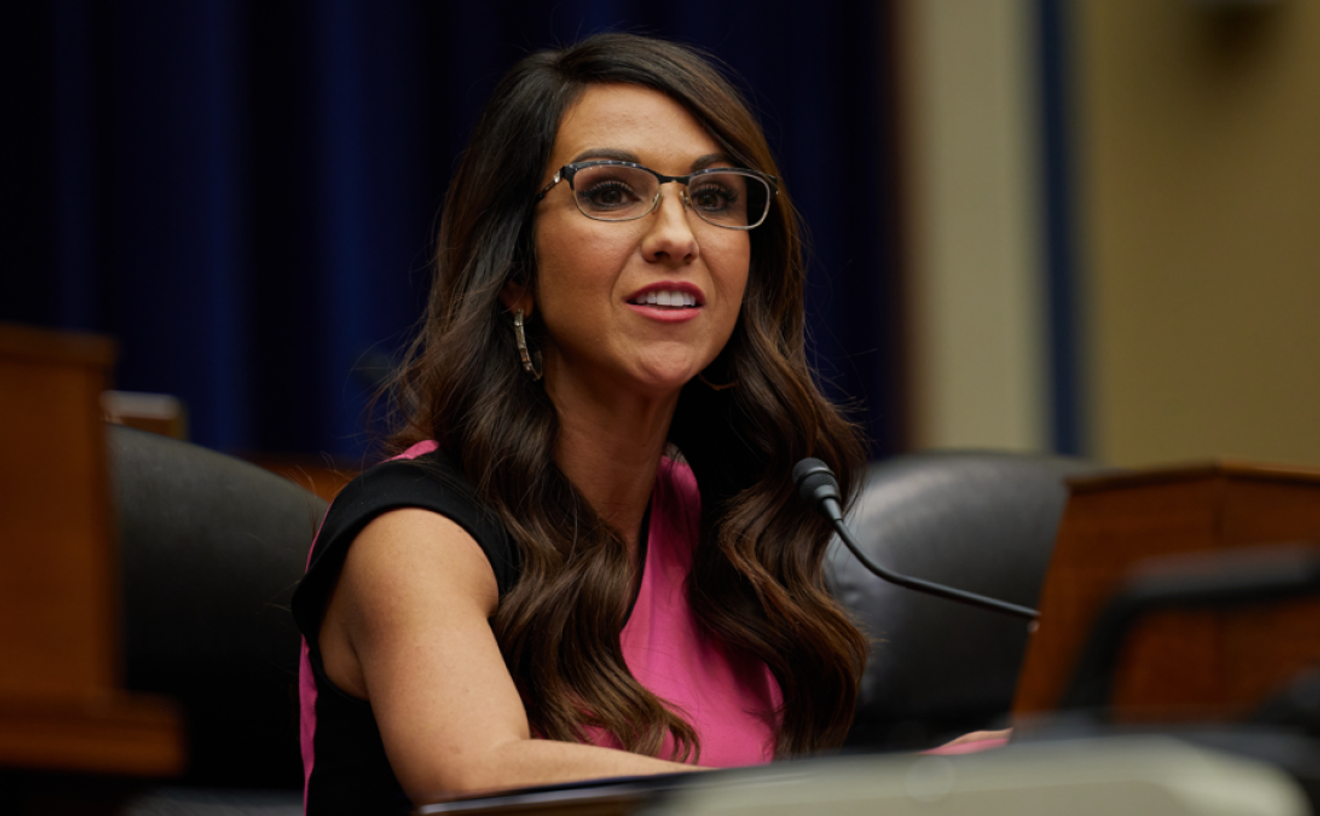Among the group’s original members were Steve Schmidt, who had served in the White House under George W. Bush; John Weaver, who worked on campaigns for George H.W. Bush and John McCain; media consultant Rick Wilson, who worked with Dick Cheney; and Reed Galen, known for working with both independents and former California governor Arnold Schwarzenegger. Along with attorney George T. Conway III (husband of former Trump counselor Kellyanne Conway), they wrote an op-ed published in the New York Times on December 17, 2019, under the headline “We Are Republicans, and We Want Trump Defeated.”
Their aim was to turn Republican and unaffiliated voters into supporters of Joe Biden, especially key demographic groups such as college-aged women and women in suburban areas.
They reached out to these voters with catchy ads and viral videos that criticized Trump sharply, such as “MAGA Church,” which got over 2.4 million views on YouTube. Soon they attracted the attention of major media outlets as well as donors from both sides of the aisle who wanted to back their punchy, hard-hitting attack ads, ultimately raising close to $80 million.
And when they looked for an executive director to lead the effort, they turned to political consultant Sarah Lenti of Denver, who in many ways embodied exactly the kind of woman they were targeting with their campaign. We caught up with Lenti in the days after the election had been called...but Trump had not conceded.
Westword: How did the Lincoln Project take form, and who recruited you to run the organization?
Sarah Lenti: Back in September of 2019, Steve Schmidt, Reed Galen, John Weaver and Rick Wilson started thinking, “What in the world can we do to defeat Trump and Trumpism?” They came up with this concept of the Lincoln Project. The idea was to do everything they could with ads, with content, to put Trump on his heels. I had known Reed Galen since 1999; we went back to the Bush campaign together, and then we were both in the White House starting in 2001. So we were really familiar with working with one another closely as campaign operatives from then on.
I was in the Whole Foods in Cherry Creek when Reed called me, and he was like, “Are you ready for this?” And he told me about the Lincoln Project. I said yes immediately and came on as a consultant in February, and became the executive director in April. They needed operational help pulling together what became an organization with more than forty employees, over sixty interns, and ultimately raising $78 million. Scale it. Scale the sucker.
You live in Denver, but when we first reached out to you during the election, you were in a secret location “somewhere in Utah.” Can you describe the scene for us there, and explain why there was a need for such caution?
We had been working remotely as a team. Then Reed and Steve, who both live in Utah, and the other founders thought it would be good to have a small cohort go to Utah and work together for the final push the last two months of the campaign. So we quarantined, got COVID tests, and started working together. The concept was: If we’re effective remotely, how much more effective could we be if we’re together? We kept it quiet because we aren’t loved by Republicans. We didn’t want to put a target on any staffer’s back. After the 2016 cycle, one of our staffers who had been working on the campaign of another candidate — I don’t want to say who it was — had been targeted and had received a death threat. So it’s real.
What was it about Donald Trump that led you to oppose him actively?
When I saw Trump talking about Mexicans as rapists and then mocking a disabled reporter — being a single mom of two boys — first of all, who does that and runs for president? I revere the office of the presidency. You are the leader of the free world. You set the example for the entire country; you set the example for children. For me, it went beyond policy; it cut to character. And in certain instances, character is more important than policy. Because if your character’s wrong, the policy falls out incorrectly.

Lincoln Project pranks included a billboard in Times Square aimed at Trump's son-in-law.
Lincoln Project
I think the Republican Party diverged along with Trump. It became a cult of personality. At first he was the outlier. I was a huge fan of Jeb Bush. I loved what he did with education in Florida; he’s a known entity, a very smart and reasoned man. That was the kind of model I was looking for. And by the way, he was one of the first Republicans to come out after Joe Biden won and congratulate him. But under Trump, the party has become unrecognizable. It’s gone off the rails.
Where do you see the Republican Party heading from here?
I don’t know. And the Lincoln Project doesn’t know. You’re hearing talk already of Trump running in 2024. You’re hearing talk of Tucker Carlson running in 2024. I don’t think Trumpism has ended. I think it’s going to be with us for a while. So we’re going to fight it through the 2024 cycle unless somebody completely different emerges.
You have also worked in international relations. You studied Russian and Eastern European studies at Stanford and served as the director of the National Security Council under Condoleezza Rice. Can you talk about the national security implications of shifting from a president like Donald Trump to a president like Joe Biden?
Biden knows a lot of these world leaders, and he’s going to put us back into a better place with our allies. In Afghanistan, both he and Trump were ready to withdraw, but Biden will make sure that special forces stay in place and that civil society there is functioning. A better exit. With respect to Putin and North Korea, he’ll make it very clear that we are not friends and that democracy is very important to us.
You also have been a champion of immigrants, and you serve on the board of directors for the National Immigration Forum. How did you get involved with that organization, and why do you support immigrant rights?
Jeb Bush Jr. brought me onto that board after we worked together on a documentary called Underwater Dreams, about a bunch of [undocumented] students who blew the water out of a robotics competition at MIT. It’s an incredible story. We feel strongly that the DREAMers who were brought here and who are studying hard should be protected. It’s not their fault that they were brought over the border. They are human beings. We feel strongly that this is a nation of immigrants and we need to be compassionate.
In previous elector cycles, you’ve worked in the Great Lakes region and in western states. Did the Lincoln Project have a geographical focus in these areas?
We did. We went from being a content machine to having a political operation as well. We did a digital get-out-the-vote operation. We were focused on Arizona, Florida, North Carolina, Pennsylvania, Michigan, Wisconsin and Georgia. We were super-targeted. We were looking at college-educated women, suburban women, older men. We had certain demographics that we knew were on the brink of moving. And it was moving 1 to 4 percent of those voters who were independents or Republicans to cross the line to make the difference in those states for Biden.
When you decided to leave D.C. and start your own political consulting firm, what made you choose Denver as your home?
I put my finger on a map! I was sick of the East Coast, and I knew I preferred being out west based on my time in grad school [at Stanford]. My sister was living in New Mexico, and I saw that from Denver, I could fly anywhere in the country in about two hours. I prospected the city with my sister, and I’m still here eight and a half years later.
Can you talk a little bit about the incredibly brave decision that you made to become a single mom of twins at the age of forty?
I did in vitro fertilization at 39 years old. I had written in my journal when I was 30 that if I wasn’t married or in a relationship by the time I was 38, I was going to go for it. Having a family was always something that I wanted. I was incredibly blessed to get pregnant with twin boys. They’re five now, and they’re in the Denver Public Schools system. One of them is currently home under quarantine because someone in his class had COVID. But he’s great. He’s going back tomorrow. He’s currently rolling around in my bed.
You’ve said, “It’s time for a president who celebrates the perspective women have to offer, and who acknowledges their inherent worth, skill, and place in our government.” Can you talk about the significance of seeing Joe Biden choose Kamala Harris as his running mate?
I mean, it’s a big deal. It’s a big deal for all women. It’s taken 231 years of voting for a woman to be elected vice president. I worked with a group called Political Parity back when I first moved to Colorado, and we know that women in Congress are better at crossing the aisle and better at negotiating. They’re very thoughtful when it comes to budgeting. They tend to reason more. I think those are great qualities. People say Kamala Harris has the most progressive record, but they’ve got to cross the aisle or they won’t get anything done. I think she will go in there in the spirit of wanting to negotiate and with goodwill. So I look forward to watching that.
Do you have a response to some of the criticisms leveled by people like David Sirota, a former Bernie Sanders advisor who’s also based in Denver? He has postulated that the Lincoln Project was not successful in moving large numbers of people to Biden, and has suggested that donors should support progressive efforts instead.
David Sirota is off base, and we’ve been responding to him on Twitter. The bottom line is that it’s impossible to have red states like Arizona and Georgia usher in a Democratic candidate without Republican voters switching over; it’s impossible. We don’t understand the attacks on the left, especially given that the Democrats had such a bad night on November 3 down-ballot. The Lincoln Project delivered Republican votes in every single state that Biden won over.
You’ve been prescient about predicting Donald Trump’s actions. What do you expect from him in the weeks to come? How do you envision us getting to January 20, 2021?
I think he’s going to continue to make these ridiculous moves, and contest, and contest, and contest. But the results are going to be the results. Biden won the popular vote, and he also won the electoral vote, and there’s just no getting around that. They’re claiming all this voter fraud, which is B.S. [Trump] doesn’t give up easily. I don’t know exactly how we’re going to get there, but in the next few weeks, you’re going to see a series of ads come out from the Lincoln Project that will call upon the president to do the right thing and call him out for doing the wrong thing.
We’re not seeing the Democrats doing that right now. We’re not seeing them put up a fight. So we’re going to do it.














